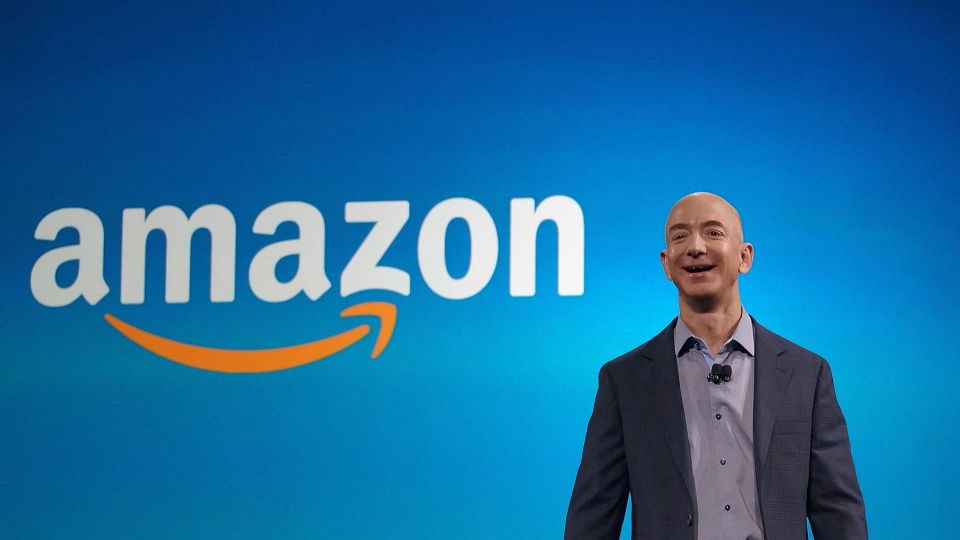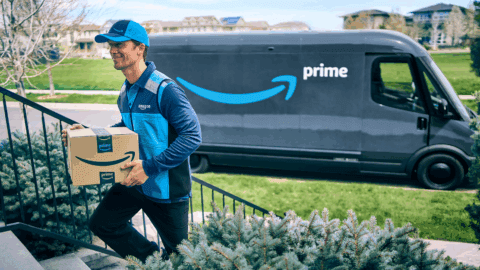Jeff Bezos has, for good or ill, long been synonymous with Amazon (that’s what happens when you lead a boundary-breaking company for a quarter-century). That’s why his move away from day-to-day operations into an Executive Chairman role raises many questions, including:
- How much of Amazon’s success can be directly attributed to Bezos’ leadership?
- Is it significant that Amazon’s new CEO, Andy Jassy, comes from its highly profitable Amazon Web Services (AWS) division? and;
- What will Jassy’s biggest challenges be going forward?
Retail TouchPoints got answers to these questions from three leading retail experts, including an author and a co-author of books about the company. They noted that while Bezos’ move to his new role means he will still exert a huge influence over Amazon (and therefore over the retail industry as a whole), this announcement signals a turning point — of sorts — for the company.
“Bezos leaving won’t, perhaps, affect day-to-day operations, but it will impact strategy and the bets Amazon is going to make (if that’s a function he’s going to relinquish),” said Robin Gaster, President of Incumetrics and author of Behemoth: Amazon Rising in an interview with Retail TouchPoints. “It’s a test of the corporate culture to see whether it can continue to function at a very high level without the direct intervention of Bezos. It’s a test also to see whether the embedded culture is now self-sustaining, though this again depends on how far Bezos steps away. I suspect Amazon will pass both tests; cultures and ‘flywheels’ don’t fall apart that quickly, so we may not even know for five to 10 years.”
Amazon’s Key Challenges: Antitrust Actions and the Future of Physical Retail
The move to Executive Chairman could better position Bezos as a spokesperson and lobbyist for Amazon, which may help him deal with regulatory challenges the company is facing. “Now that [the flywheel model] is self-sustaining, the main threats to Amazon’s momentum are policy-related, e.g. U.S. and EU antitrust censure and reform,” said Miya Knights, Director at Zendu Contracting Services and co-author of Amazon and Omnichannel Retail. “The fact he’s taking a sideways step suggests he’ll still be in a position to safeguard his vision and supervise strategic execution.”
Other Amazon watchers agree that regulatory issues were a major motivator for Bezos’ move. “Bezos will move behind the curtain at Amazon and push poor Andy Jassy into the antitrust hot seat,” said Jason Boyce, Founder of avenue7media and author of The Amazon Jungle. In comments provided to Retail TouchPoints, Boyce added that “Jassy bleeds Amazon blue and the company won’t miss a beat. But Bezos isn’t going anywhere — he’ll continue to drive the vision and future of Amazon.”
In fact, incoming CEO Andy Jassy will face a host of challenges, including taking on responsibility for Amazon divisions that have not produced the steady stream of profits generated by AWS. “The challenges in retail are quite different from AWS, which doesn’t have big money-losing divisions, and has experienced huge organic growth and will for the next few years,” said Gaster. “Things are much tougher in retail, though as something of an outsider, maybe Jassy will be able to make some difficult decisions more easily.”
One set of those decisions will certainly involve Amazon’s physical grocery store presence. “Will Amazon continue to invest in Whole Foods and the Amazon Go platform?,” asked Hilding Anderson, Head of Retail Strategy at Publicis Sapient, in an interview with Retail TouchPoints. “Or will he focus on the core ecommerce/mobile/AWS/advertising businesses?”
Jassy’s biggest challenges will be “increasing and/or maintaining AWS market share against growing competition (Google, Azure, Alibaba) in an increasingly saturated market,” noted Knights. “Additionally, [they will involve] learning to run Amazon’s retail arm and mapping a retail growth strategy that includes grocery and fashion, and learning to run multiple, complex interdependent businesses, i.e. AWS, retail, marketplace and B2B sales and logistics, streaming media and sports, healthcare, etc. The list goes on, and only time will tell whether Jassy’s tech business smarts are transferable.”
Measuring Bezos’ Impact
As for Bezos himself, experts admire how his combination of single-mindedness and flexibility led Amazon to its current position.
“As a founder, Bezos was obviously directly accountable to the vision and culture of the launch of the organization,” said Anderson. “Yet founders who can thrive in the transition from a small company to an enterprise are few and far between. He is a rare outlier in that respect, and worth recognizing. His vision for a large company as a set of small, agile teams, as well as his focus on APIs and unique way of managing meetings will, I think, long be a study for management leaders and thinkers in the future.”
Others noted Bezos’ role in creating a company that is in many ways unique. “I am absolutely not a fan of the ‘great man’ theory of history; however, Bezos is something of the exception,” said Gaster. “If Amazon is a machine for making more Amazon, as Benedict Evans said (and I agree), then Bezos was the architect of that machine. Not of course in every detail, but he has been remarkably prescient in many ways, and deserves a lot of the credit for what Amazon has become.”
While Knights believes that a large percentage of Amazon’s success is due to “being in the right place at the right time,” she added that this would undoubtedly never have happened without Bezos. “I don’t think you overlook how important a part his vision, strategy and execution have had to play in its success,” she noted. “Put another way, we don’t talk about the CEO of eBay in the same way we talk about Bezos, Jobs and Gates, do we?”













